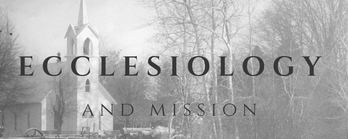 Some wasted thought on church community as mission.† Based on passages such as Ephesians 2:11-22, God’s mission in Christ, at this time, is, first and more most, about being church, specifically a local gathered-church in a place*, that is being the new humanity, a distinctive community of people.
0 Comments
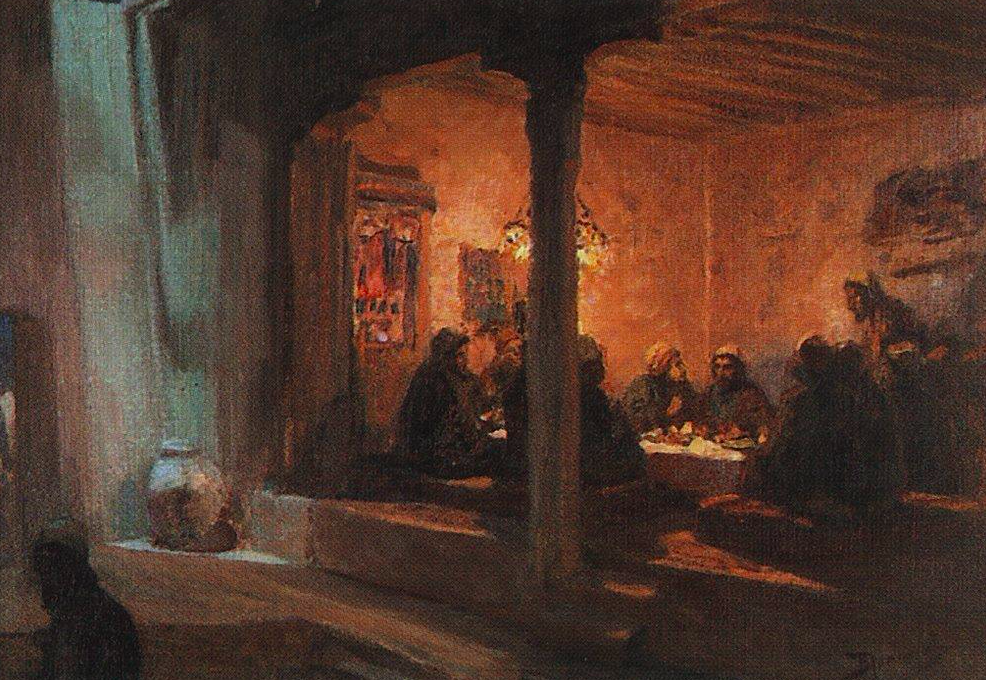 There are so many grand and wonderful paintings of early church times of table fellowship. And some I really, truly like. Yet, there is a male-centerness to them that would not have reflected the actual tables of Christian fellowship of the early church that these scenes are to depict. I do not see women and wives and slaves and children; typically just men, and when women are depicted, they are serving food. Most of these grand paintings were created and come at the time after Constantine, the Roman Empire Caesar (272 AD - 337 AD), herded the churches away from the homes of Christians and into buildings sanctioned by the State, along with laws to build up and protect an appointed church authority and priesthood consisting solely of men. Church began to reflect the culture of the empire more so than the one painted by the Apostolic church and the early church through 300 AD. This move recreated church away from the Table fellowship of strangers and unequals that had increased and spread since the days after the Pentecost of Acts 2. Most of these wonderful paintings, as far as I can tell, come from the post-constantine Christian era, reading their “church experience” back into the apostolic and early church (form and experience). We do that, too, now. We start with how we do church now and read it back into the New Testament accounts and teaching--this anachronistic. Our vision of the church not only reflects the flaws and the unredeemed aspects of our social and cultural times (and trends), but we read this experience of church back into the life of the early church and, worse, back into the vision of the church depicted by our New Testament writers. We need to do better.
The goal of redemptive history is the cosmic restoration of creation. This is the story of the Bible. This is the church’s story. This should be your church's story. God has determined to use a redeemed people to herald this message. The ekklesia of Jesus, the gathered-church, composed of redeemed and restored people, living out the gospel, illustrating this cosmic restoration through its treasonous worship of the risen Jesus, the Lord over all other claims to the throne, its missional behavior to its neighbors, and , particularly, through the fellowship of restored human relationships among strangers and unequals. The gathered-church of the Lamb of God is unlike any and all other rebellions and resistance movements: church is not (ever) aligned with a government or party or state or king in order to violently overthrow or by means of State-authority and any form of violence to maintain; church is never (ever) aligned with the spilling of blood through strength or cunning to change or maintain the status quo of an unredeemed social structure or cultural state of affairs; and, where privileged to participate, church does not count on the ballot-box to overthrow power or maintain a particular person or party in power. The church uses a table of fellowship over food, broken bread, and a raised cup of allegiance to the risen King of kings and Lord of lords, now seated at the right hand of God in the heavenly places. This has been and is God’s way of, not saving the State or some preferred demographic or cultural value, but demonstrating that all of history is moving toward His ultimate conclusion of a restored creation. How does God reveal and accomplish this purpose of history? Little and grand tables, scattered throughout time and place, some well noticed and many hidden in the back alleys and among the margins–this has been where God does his rewriting of corrupted history and the deconstructing of the powers of humankind. This is church-story. Not just the best story. But the true story of history. This is the story you and I are invited into; and, the gathered-church is the place God restores all things. Not the battlefield. Not the ballot box. But at tables of strangers and unequals.
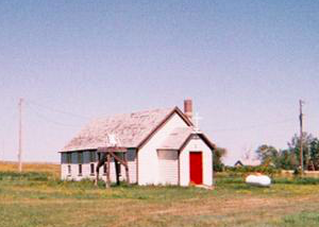 Not long ago, I developed a paper on why place matters and that loving one's neighbor cannot exclude caring about (loving) that neighbor’s neighborhood. In an article by Stanley Hauerwas, “The place of the church and the agony of Anglicanism,” he draws our attention to Rowan Williams, who “observes that the New Testament testifies to the creation of a pathway between earth and heaven that nothing can ever again close.” A place has been cleared in which God and human reality can belong together without rivalry or fear. That place is Jesus, in Christ, now better known as “church.” It is a place where a love abides that is at once vulnerable and without protection; a place in which human competition does not count:
 There is no doubt in my mind that the Bible teaches that the church is to have a public voice on social issues and, especially, the needs of the poor. The question is how is this voice to be manifested. I will agree the are numerous, relevant applicable ways this voice can be heralded, but by actual words and social action means. Yet, we seem divided: Half of us church people seem to think the “voice” is setting a good example by maintaining and raising Christian-acceptable families, promoting education and hard work, and, of course, getting a job–if others would just follow our example all the social problems would be ameliorated and the poor wouldnt be poor. The other half seem to focused “activism” at some level that seeks to change the systems in place–if our government didn’t have a law or had a certain law, or this company had to do this or that, or if that social group had to do this our that, things would change for the better. And, don’t be fooled, both sides believe our “God-given voice” is in voting correctly, as if voting–and some truly believe and act this way–is the church’s weapon of choice for change or for maintaining what we already have. For those who see the church’s voice as “activism” of some sort (and I am not necessarily against activism as Christians or even as church), but this means (i.e., method or way of having a voice) produces leaders whose personalities and resources create platforms for celebritism (yes, I invited a word, but it is am important word) and this means (i.e., method or way of having a voice) shortly degenerates into one power to replace the other power we don’t want or to maintain what we do want; so, that we can create and apply law in our social (preferred) image, which is accompanied by the power to punish the law-breakers. [Seriously, Christians, are you okay with church having such power–and it wouldn’t be the church in general, but powerful church individuals.] We are accustomed to this means of social reform–it is however the language and method of Caesar not Christ. The means presented to us in the New Testament (and seems to have been true of the early church for about 300 years) is, well, church: the messy yet discipling life of the church that is (supposed to be) made up of strangers and unequals, loving one another. The public voice of the church is how it does church. This is the church’s voice on social issues and the needs of the poor. I am more and more convinced of this.  While I have been a student of the Bible for over forty years and, actually, not a casual but a serious one since the week after my conversion on July 10, 1978 when the guys that lead me to the Lord bought me a New American Standard Bible from a Boise, Idaho Bible Book Store, I am, still, always learning and listening (hopefully better and hopefully well). However, if I already know what the Bible should and ought to say, why read it at all? If I already know what each book, Gospel, Letter, and text is supposed to say BEFORE I read them, the Bible, a Bible book, a chapter, a text cannot teach me anything "new" nor challenge me afresh. These, then, only become weapons to use against those that don’t think or conform to my way of thinking or political agenda. The Bible (or depending on who is reading it and who is making this assumption), then, is always going to preach to me a conservative or progressive lesson I already know; it is always going to teach me the same old message or same enlightened message; it will always point me toward voting Republican or Democrat at the ballot box; it will always teach me to accept or hate certain others; it will always move me to certain places and not to others; it will always teach me what social location is best for success, safety, and prosperity. While there is value in hermeneutic, confessional, and theological centers and consistency (I certainly have them–well, I sure hope I do), there is also value, as someone has blogged, “just allowing the Bible to be strange and unsettling.” God’s word should always be challenging my assumptions, my politics, my social locations—or I will simply have a harden heart (or continue to have one) that is never confronted, never challenged, and never breaking my idolatries. I am already woke. I already know what the Bible is gonna say.
And this is why church, that is ecclesiology, is so so important.
I have been wrong on many things theological over the years (e.g., nature of man and nature of sin, God's sovereignty and election, the importance of the Lord's supper, and too many more to be embarrassed over, which I hope I know better now), but the biggest “didn’t get” was “church.” I, like most of us, define “church” by and through our culture, our sociological history (i.e., our story), even my personal story, and my social location as (now don’t get offended, or maybe you should)—my social location as a white, suburbanite, living in America, and a person within a westward marching, European cultural history (story). Really need to rethink church and do so within the context of the biblical story.
In this, they mistakenly imagine that to pass a referendum, elect a candidate, pass a law, or change a policy is to change culture. In truth, they probably know better, but in terms of the amount of energy expended and money spent, the net effect is a view much like this. While Christian activists (conservative and progressive) have been fairly influential in the political sphere at different times in recent decades, they have embraced a means to power that seethes with resentment, anger, and bitterness for the injury they believe they have suffered. The public and political culture of contemporary Christianity have become defined by such negations. Christians believe that they have a legitimate right to participate in the democratic process and they are, of course, right. The problem resides with the political culture they not only embrace but have helped to create. The tragic irony is that in the name of resisting the dark nihilisms of the modern age, Christians—in their will to power and the ressentiment that fuels it—perpetuate that nihilism. In so doing, Christians undermine the message of the very gospel they cherish and desire to advance" (James Davison Hunter from To Change the World). *My previous post on Voting and the Table
The salt, light, and city imagery should be read in light of or as flowing from the Beatitudes (Matthew 5:3-12). Verses 11–12 are certainly a bridge, making a pivot from the general invitation nature of the Beatitudes to the church directed “you are” subjects in vv. 12-16. Yet, what penetrating flavor? What light is to shine? What kind of City on a Hill? The reference to doing “good works” in verse 16, at a minimum, implies the good and counter-cultural and contra-social/societal flourishing that flow from the Beatitudes. Salt and light that indicate that the poor in spirit (by now should should know this means the actual poor), those who mourn (i.e., those lacking resources), and the meek (i.e., the powerless of the earth) have the kingdom, are comforted, and inherit the earth; light that illumines from a City where the desire for God’s justice is thirsted for and hungered for; where mercy prevails, the unclean are welcomed, and filled with peacemaking sons of God. The content and polity (if you will) of the City on a Hill (which I do take as church, bytheway) is the Beatitudes. And, if you (we, that is a church) actually lives under this constitution of Beatitudes, remember, “Blessed are those who are persecuted” for persecution will come for these social-upheaving Beatitudes are not naturally welcomed nor accepted by the powers (i.e., the powerful and those in power); and, remember, you are blessed “when others revile you and persecute you and utter all kinds of evil against you falsely” for power (the powerful and those in power) do not want a City like this. But “rejoice and be glad, for your reward is great in heaven, for so they persecuted the prophets [i.e., those who foresaw this City on a Hill, the king of this City, and this time of Beatitude-flourishing] who were before you.” Jesus is the King of this City and it is the good works of the Beatitudes that will glorify our Father who is in heaven.
|
AuthorChip M. Anderson, advocate for biblical social action; pastor of an urban church plant in the Hill neighborhood of New Haven, CT; husband, father, author, former Greek & NT professor; and, 19 years involved with social action. Archives
February 2024
Categories
All
|
Pages |
More Pages |
|
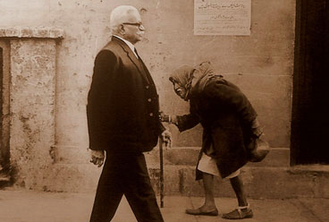
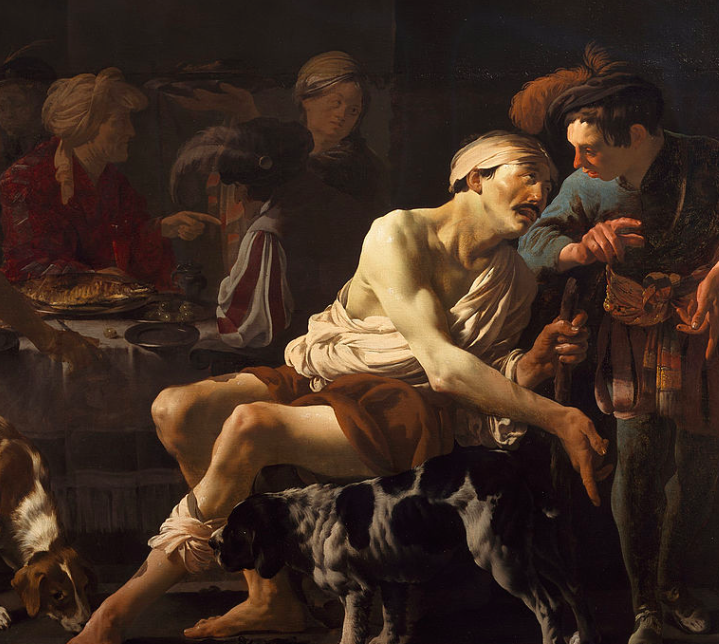
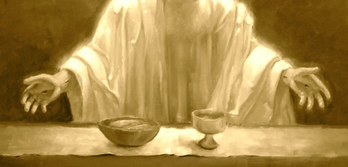


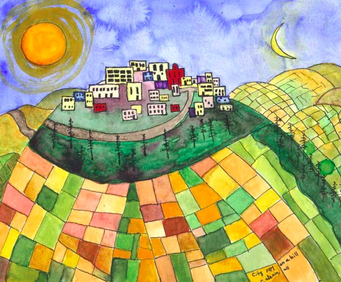
 RSS Feed
RSS Feed